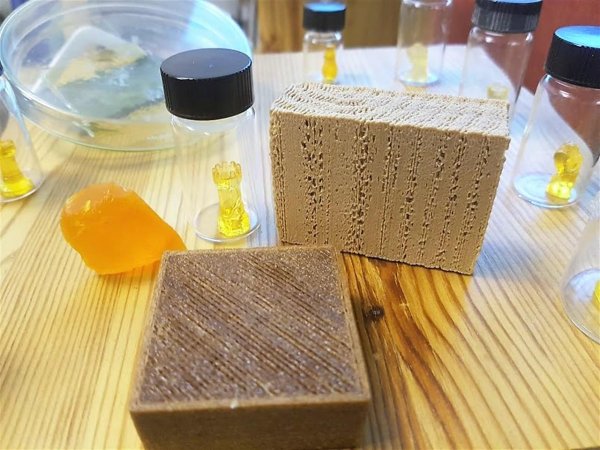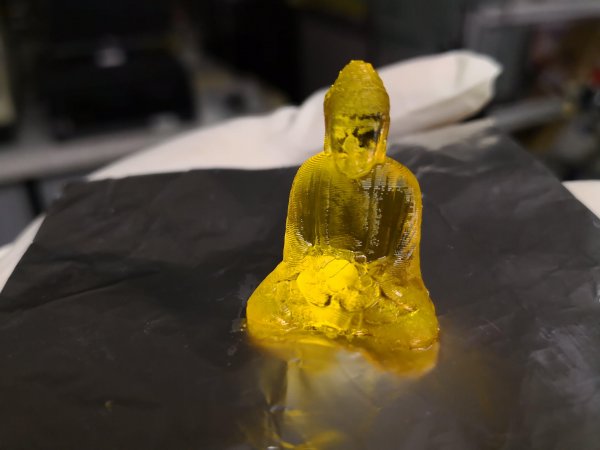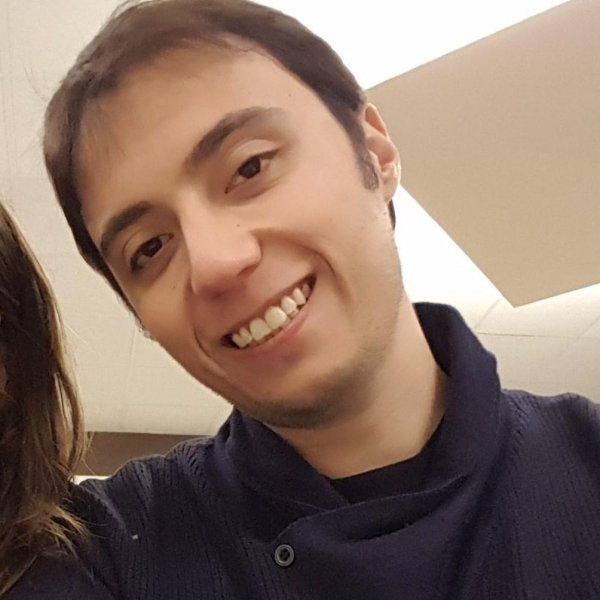Exhibitors 2018
- HOME AUTOMATION
- ROBOTICS
- YOUNG MAKERS (< 18)
- OPEN SOURCE
- 3D PRINTING
- DRONES
- EDUCATION
- FABRICATION
- HACKS
- NEW MANUFACTURING
- SCIENCE
- ENERGY & SUSTAINABILITY
- ART
- INTERNET OF THINGS
- MUSIC & SOUND
- RECYCLING & UPCYCLING
- KIDS & EDUCATION
- ARTISANS & NEW CRAFT
- CULTURAL HERITAGE
- GAMES
- WELLNESS & HEALTHCARE
- FASHION & WEARABLES
- FOOD & AGRICULTURE
- BIOLOGY
- 3D SCANNING
- AEROSPACE
- STEAM PUNK
- ARTIFICIAL INTELLIGENCE
- ARDUINO
- CROWDFUNDING
Materiali naturali e innovativi per la stampa 3D
In full respect of the principles on which the circular economy is based, RadChemLab laboratory is working on several lines of research related to a current theme such as 3D Printing, reusing and enhancing materials that are normally considered waste: spent food oils or lignocellulosic materials.
For the "stereolithographic" or "resin" 3D printing, based on the use of light to harden photosensitive resins, we have developed formulations based on eco-compatible vegetable oils, which guarantee performances comparable to those currently on the market. This choice is enhanced by the fact that most of the resins currently used for this technology are all based on acrylates: very toxic and allergenic compounds. They gradually release volatile organic compounds (VOC).
Our formulation do not release appreciable quantities of VOC, it is ECO compatible and allows re-use of difficult-to-dispose elements like the exhausted food oils, as basic monomer. The same process of production of resins is solvent free and with an atom economy> 95%. The study of photoinitiators and 100% natural dyes is being carried out to replace the synthetic ones currently used, to increase the natural component of the resins. The final goal is to obtain both ECO-compatible resins deriving from waste materials and also BIO-compatible products for possible applications in the medical field.
For the FDM (Fused Deposition Modeling) 3D printing, materials are being studied from natural composite sources. We are developing a filament composed by PLA and waste lignocellulosic materials. The product can be used for 3D printing, 100% natural, recycling materials otherwise unused and destined for disposal. The filament developed by us has good mechanical characteristics, comparable to commercial counterparts and low production costs.
For the "stereolithographic" or "resin" 3D printing, based on the use of light to harden photosensitive resins, we have developed formulations based on eco-compatible vegetable oils, which guarantee performances comparable to those currently on the market. This choice is enhanced by the fact that most of the resins currently used for this technology are all based on acrylates: very toxic and allergenic compounds. They gradually release volatile organic compounds (VOC).
Our formulation do not release appreciable quantities of VOC, it is ECO compatible and allows re-use of difficult-to-dispose elements like the exhausted food oils, as basic monomer. The same process of production of resins is solvent free and with an atom economy> 95%. The study of photoinitiators and 100% natural dyes is being carried out to replace the synthetic ones currently used, to increase the natural component of the resins. The final goal is to obtain both ECO-compatible resins deriving from waste materials and also BIO-compatible products for possible applications in the medical field.
For the FDM (Fused Deposition Modeling) 3D printing, materials are being studied from natural composite sources. We are developing a filament composed by PLA and waste lignocellulosic materials. The product can be used for 3D printing, 100% natural, recycling materials otherwise unused and destined for disposal. The filament developed by us has good mechanical characteristics, comparable to commercial counterparts and low production costs.
Italy
Daniele Dondi, Diego Savio Branciforti, Simone Lazzaroni, Carla Augello, Silvia Ferrari
Daniele Dondi is associate professor in chemistry at University of Pavia. His specializations are photochemistry and polymer chemistry.
Diego Savio Branciforti is an engineer, specialized in visible light 3D printing. During his thesis he developed a DLP printer resins from vegetable oils for stereolithographic 3d printing.
Simone Lazzaroni is PhD in organic chemistry. His expertises are photochemistry and radical chemistry.
Carla Augello is an engineer, specialized in visible light 3D printing. During her thesis she developed resins from waste food oils for stereolithographic 3d printing.
Silvia Ferrari is a Bioengineering student. During her thesis she is developing innovative materials for FDM 3D printing
Diego Savio Branciforti is an engineer, specialized in visible light 3D printing. During his thesis he developed a DLP printer resins from vegetable oils for stereolithographic 3d printing.
Simone Lazzaroni is PhD in organic chemistry. His expertises are photochemistry and radical chemistry.
Carla Augello is an engineer, specialized in visible light 3D printing. During her thesis she developed resins from waste food oils for stereolithographic 3d printing.
Silvia Ferrari is a Bioengineering student. During her thesis she is developing innovative materials for FDM 3D printing
E13 (pav. 6)





















































































